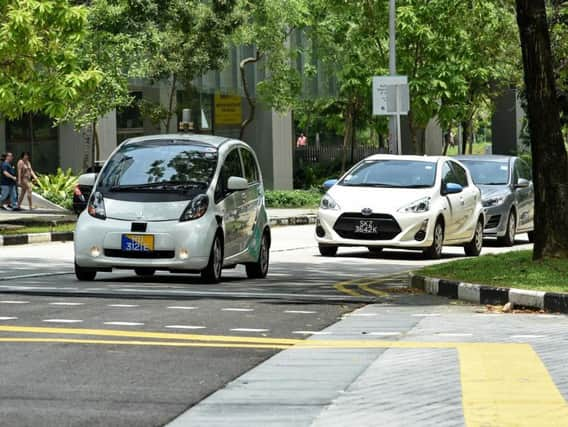Driverless cars guided by satellites coming to streets near you


Professor Nuran Acur and Dr Stephan von Delft, of the Adam Smith Business School at the University of Glasgow, are key members of Project DARWIN investigating the use of satellite technology for the first time to persuade businesses, governments and the public that such technology could play a vital role in the nation’s transport system.
Currently self-driving cars, operating mostly in the US, generate lots of data to connect information about their routes to other such vehicles.
Advertisement
Hide AdAdvertisement
Hide AdHowever, existing mobile phone technology is not capable of dealing with the technology load.
The new project will examine filling those gaps with satellites and the latest generation of mobile communications 5G, with telecommunications provider O2.
The new project will develop a proof-of-concept for the next generation technology needed for driverless cars.
"Large rural areas, such as we have in Scotland, could benefit from this." - Dr Stephan von Delft
Dr von Delft, senior lecturer in strategy, said: “Larger cities in the UK have begun to role out 5G, but even in the future there could be large gaps in cities which are not covered.
“This is where satellites comes in.
"Large rural areas, such as we have in Scotland, could benefit from this.
“Prof Acur and myself will look at how to commercialise something like this. We want to show how in principle the technology is possible to move from 5G to satellites and lay out a clear business case detailing the sustainable real benefits to the economy.
“Questions we’ll be asking include - do we get in touch directly with the customer, existing telecommunications companies or car producers?
Advertisement
Hide AdAdvertisement
Hide AdDr von Delft added: “There are lots of driverless car projects around the world, especially in the US with Google and Uber but we think Scotland should not be behind.
£4 million budget for initial one-year project
“We need to connect to businesses to close the gap with other players.”
The initial one-year ‘proof-of-concept’ phase of Project DARWIN has a budget of £4m made of investments from agencies and companies involved.
The new technology will be developed by engineers based at the University of Oxford’s Harwell campus, satellite operator Hispasat and start-ups.